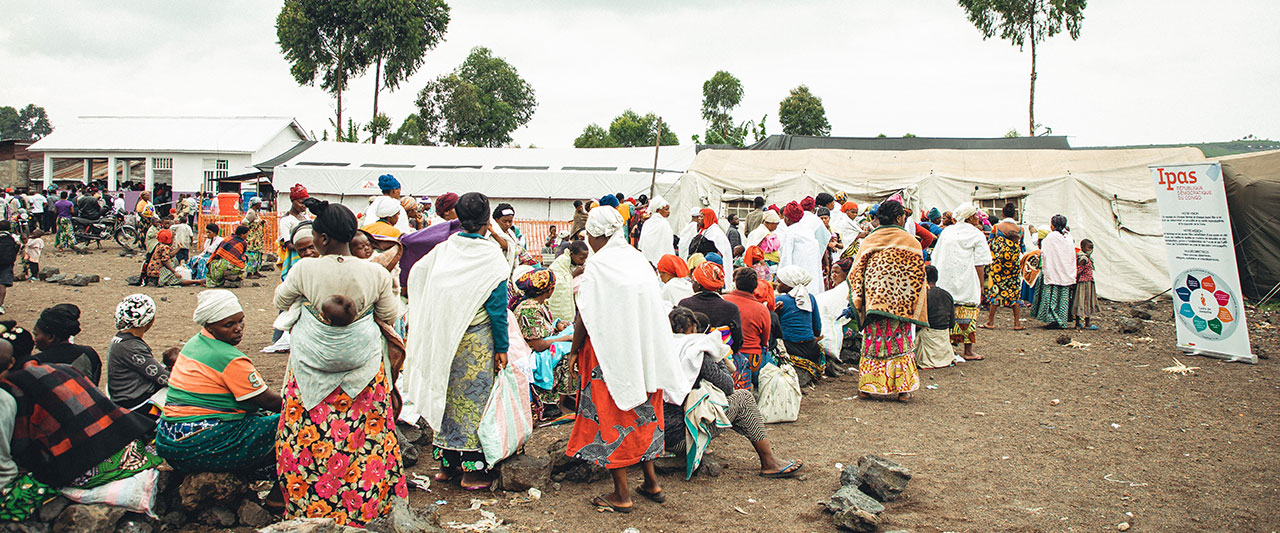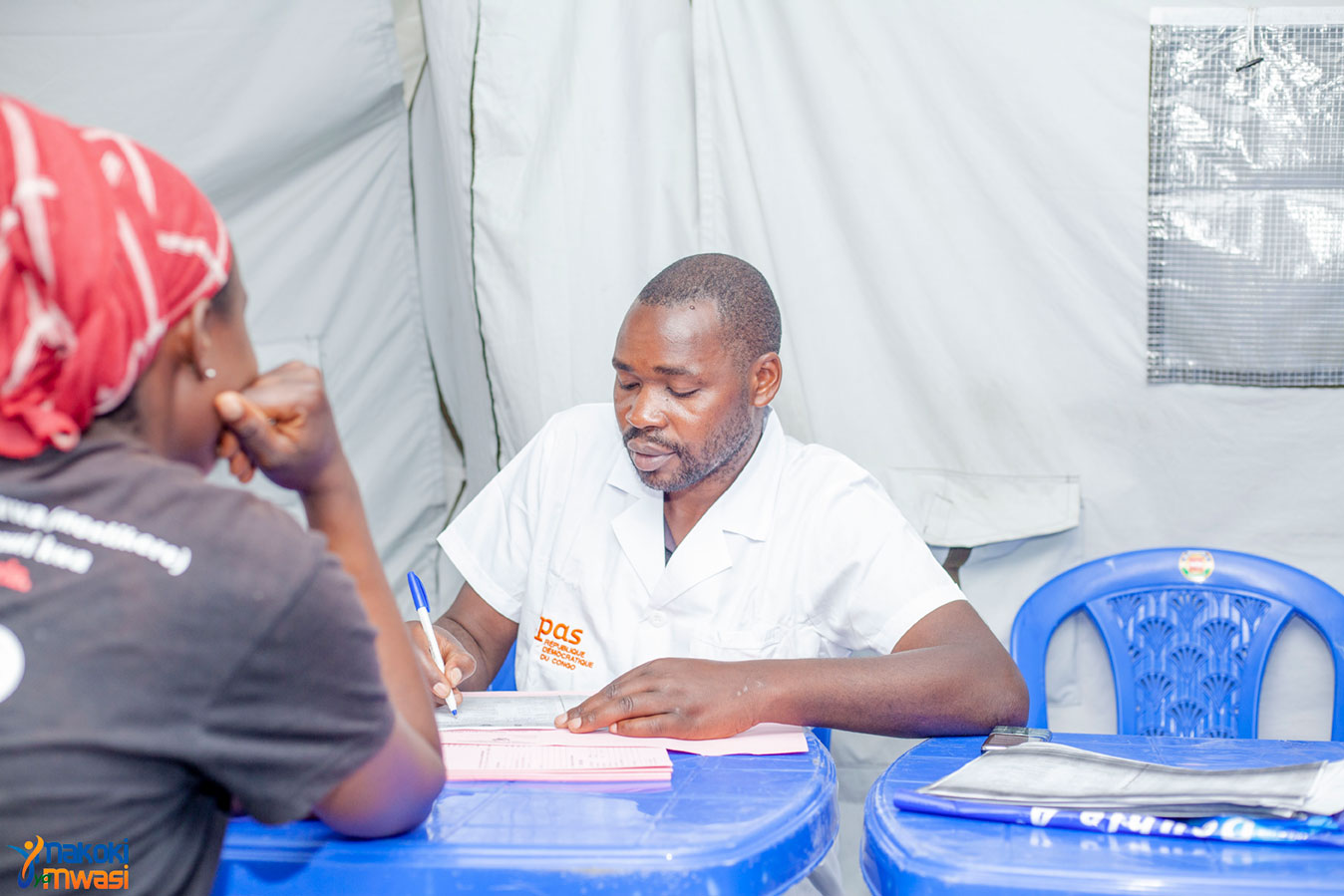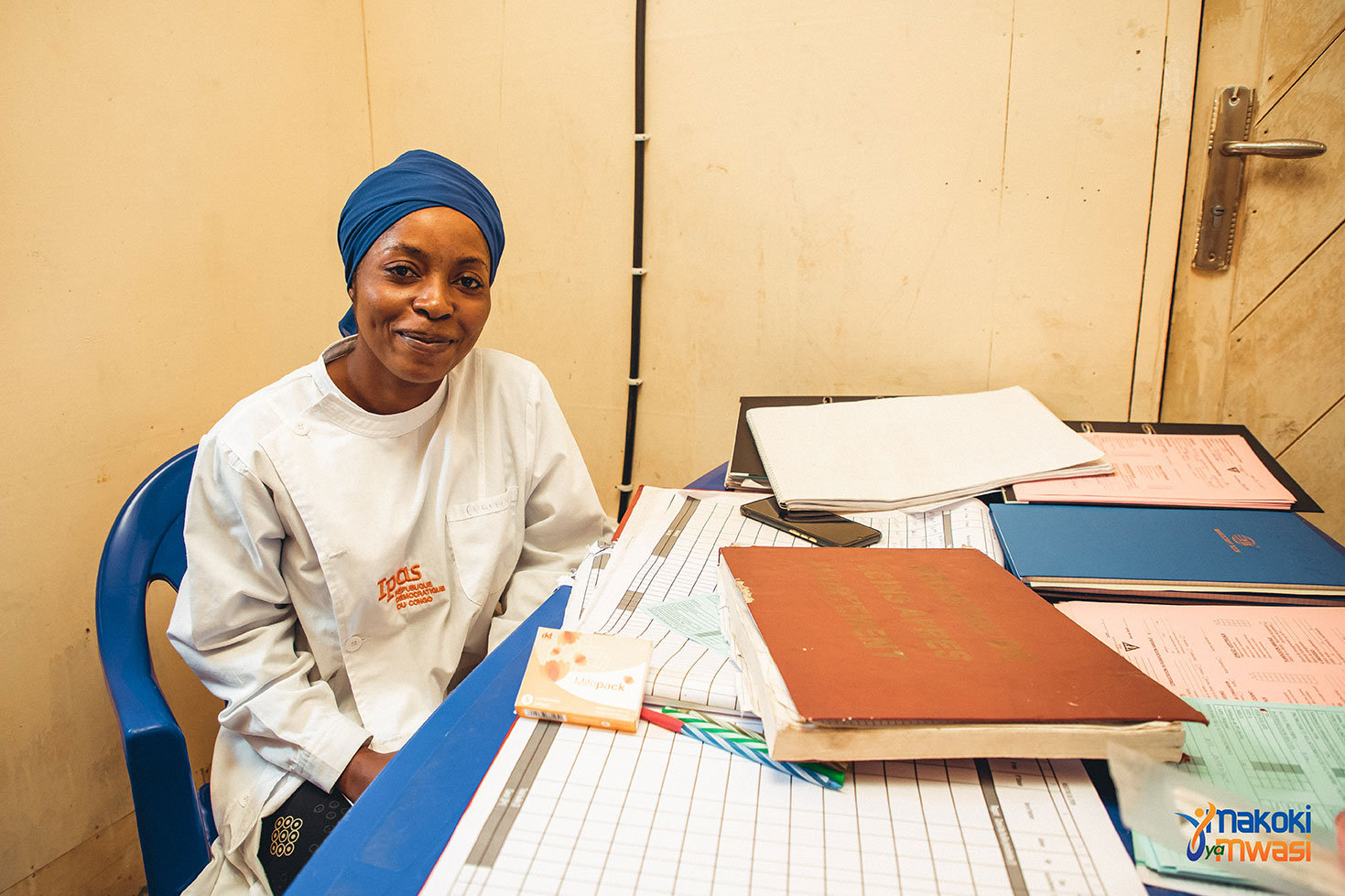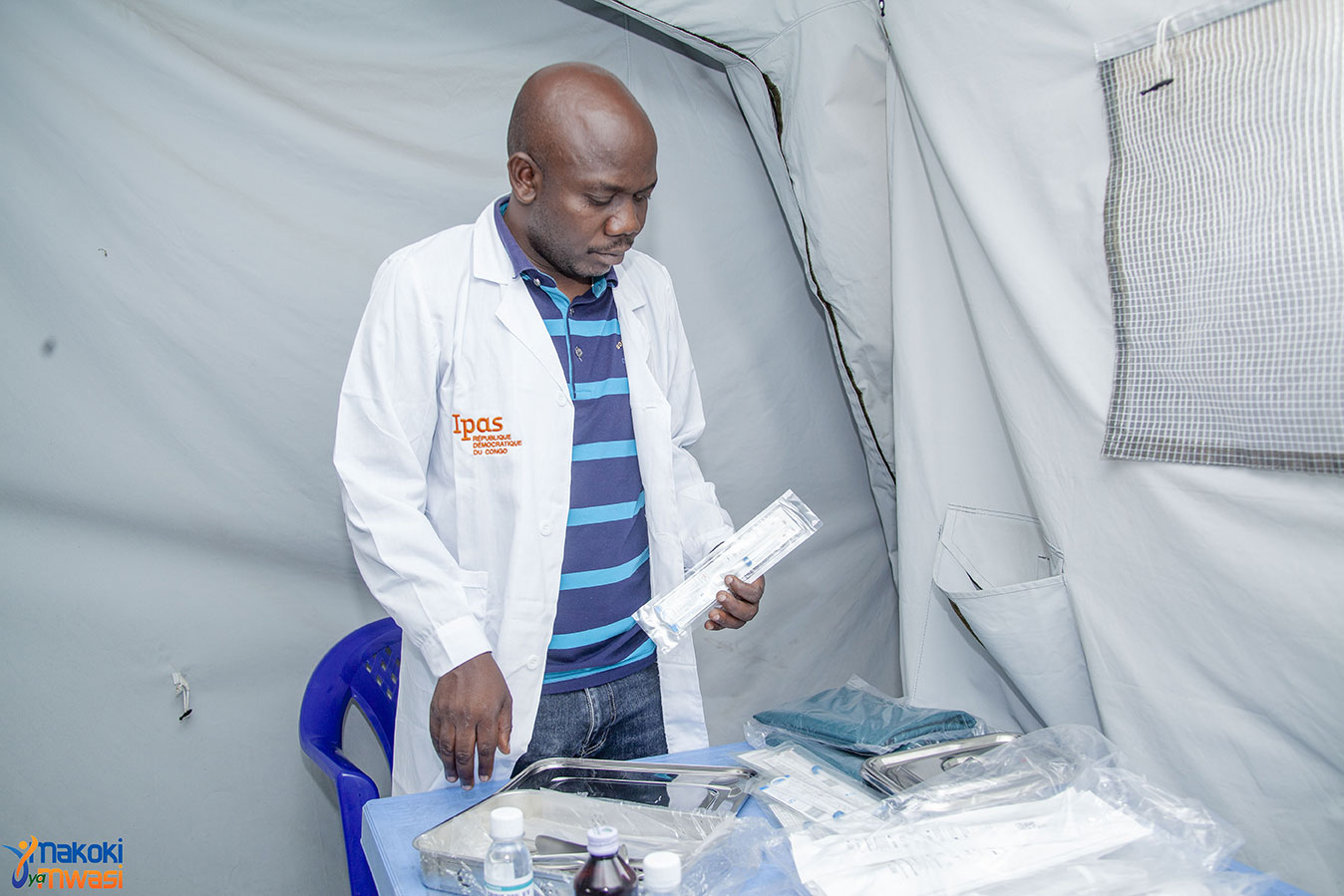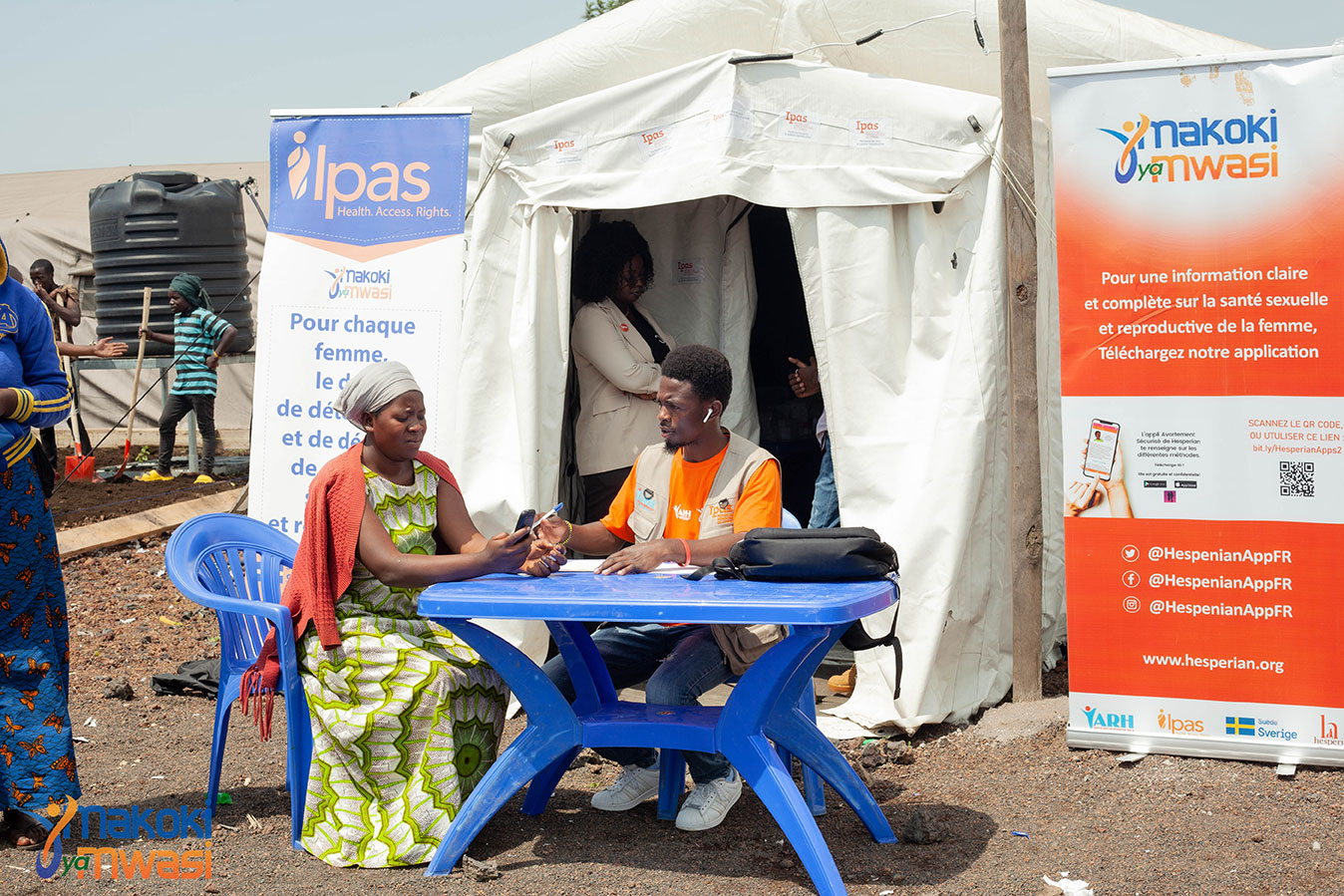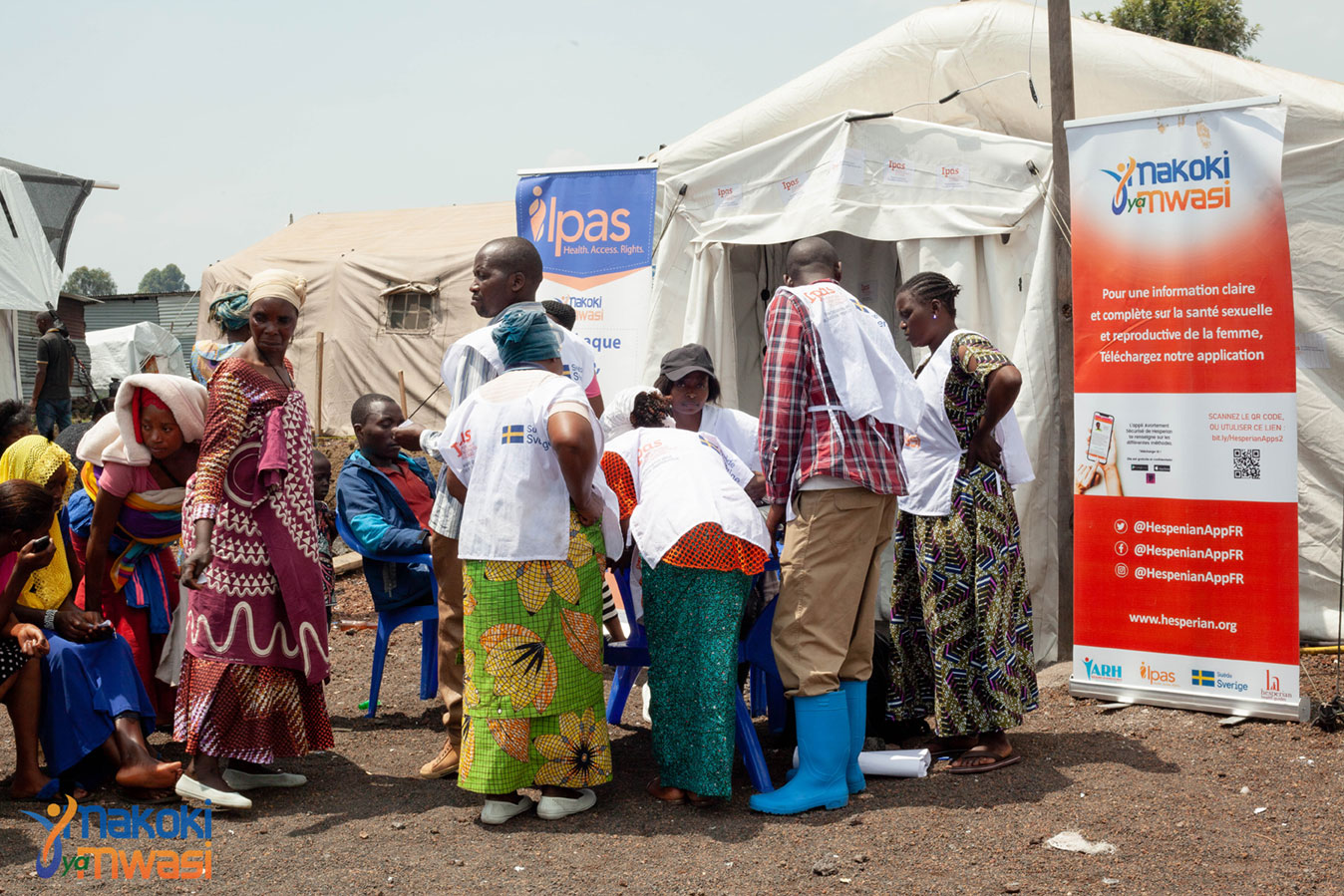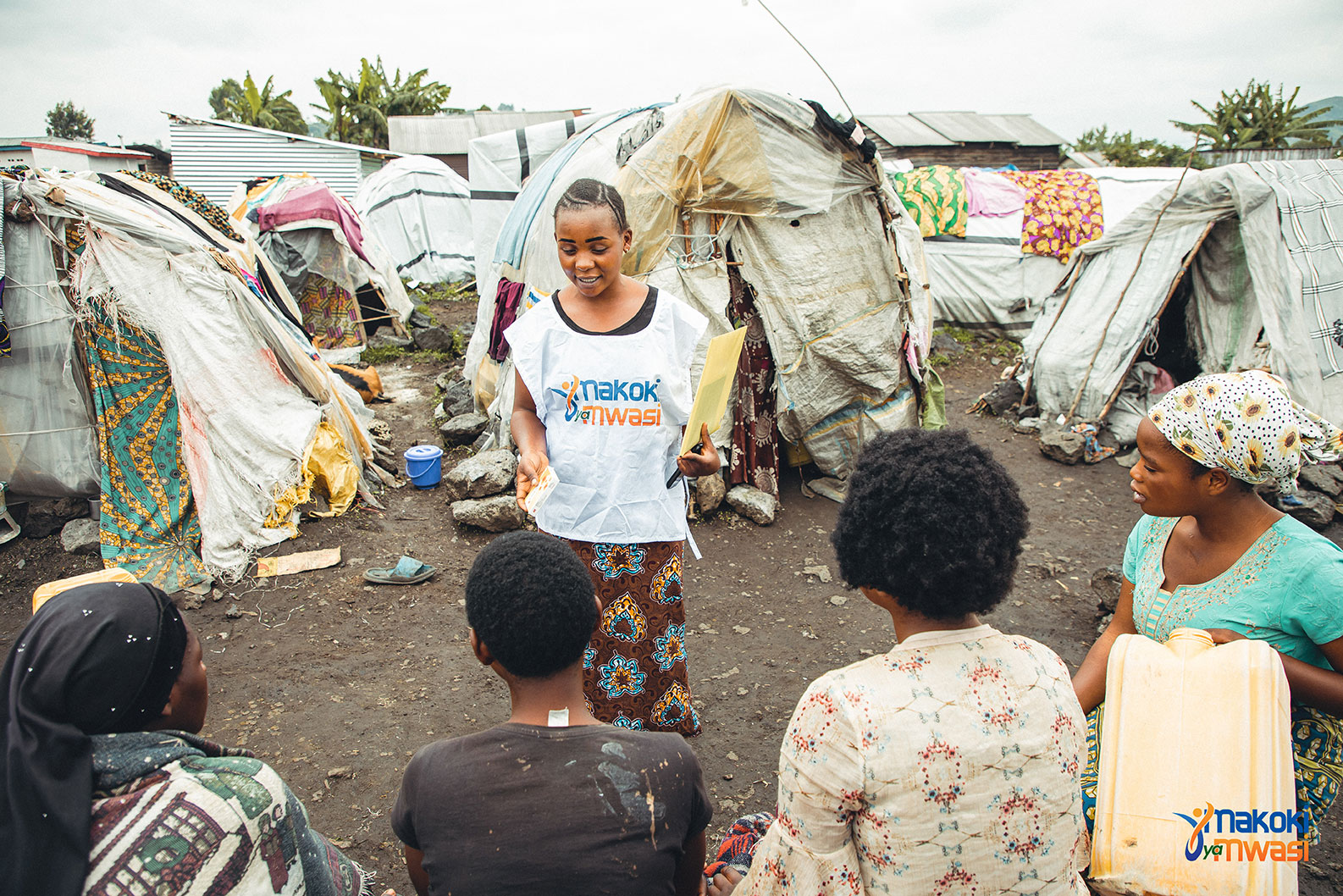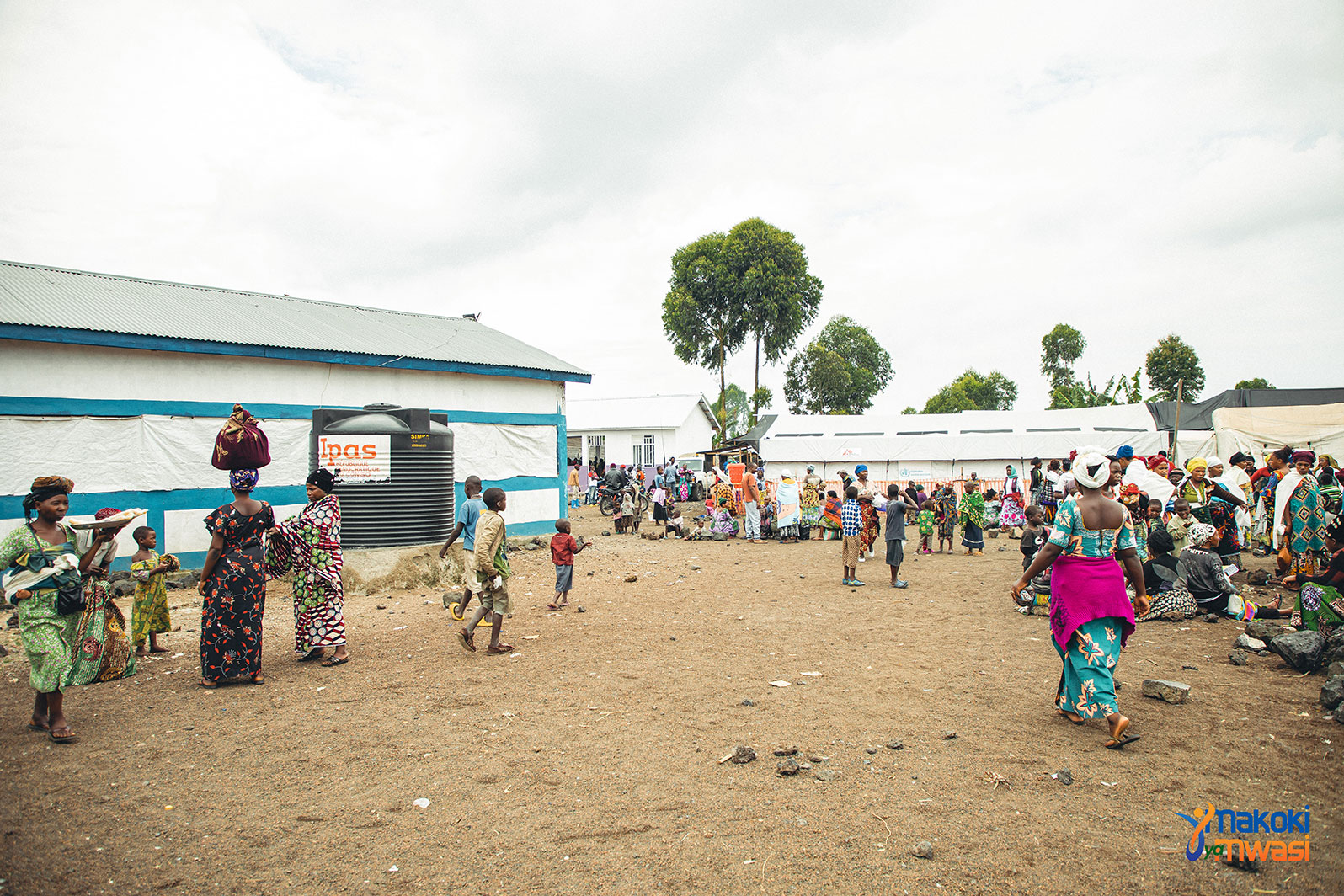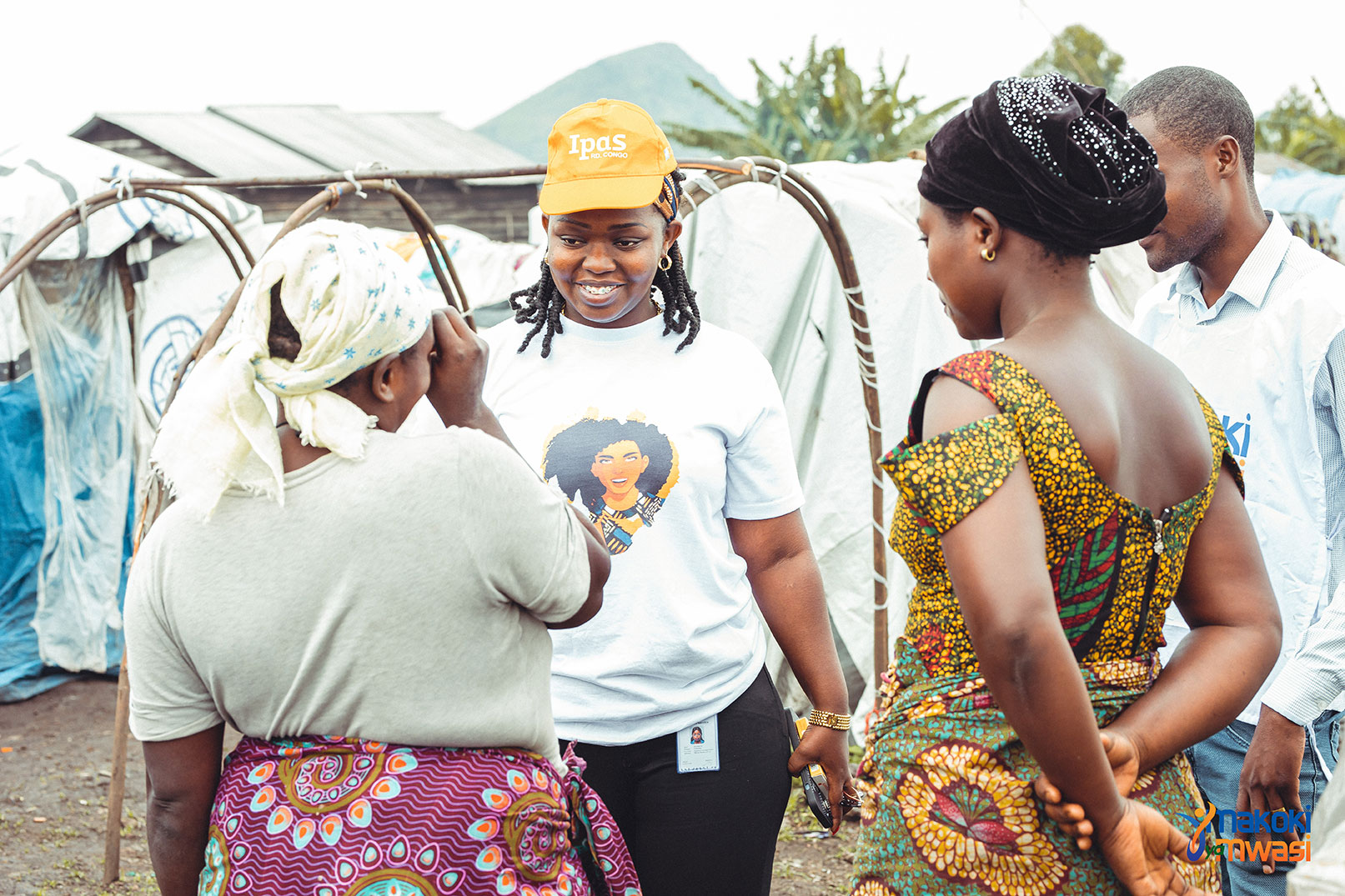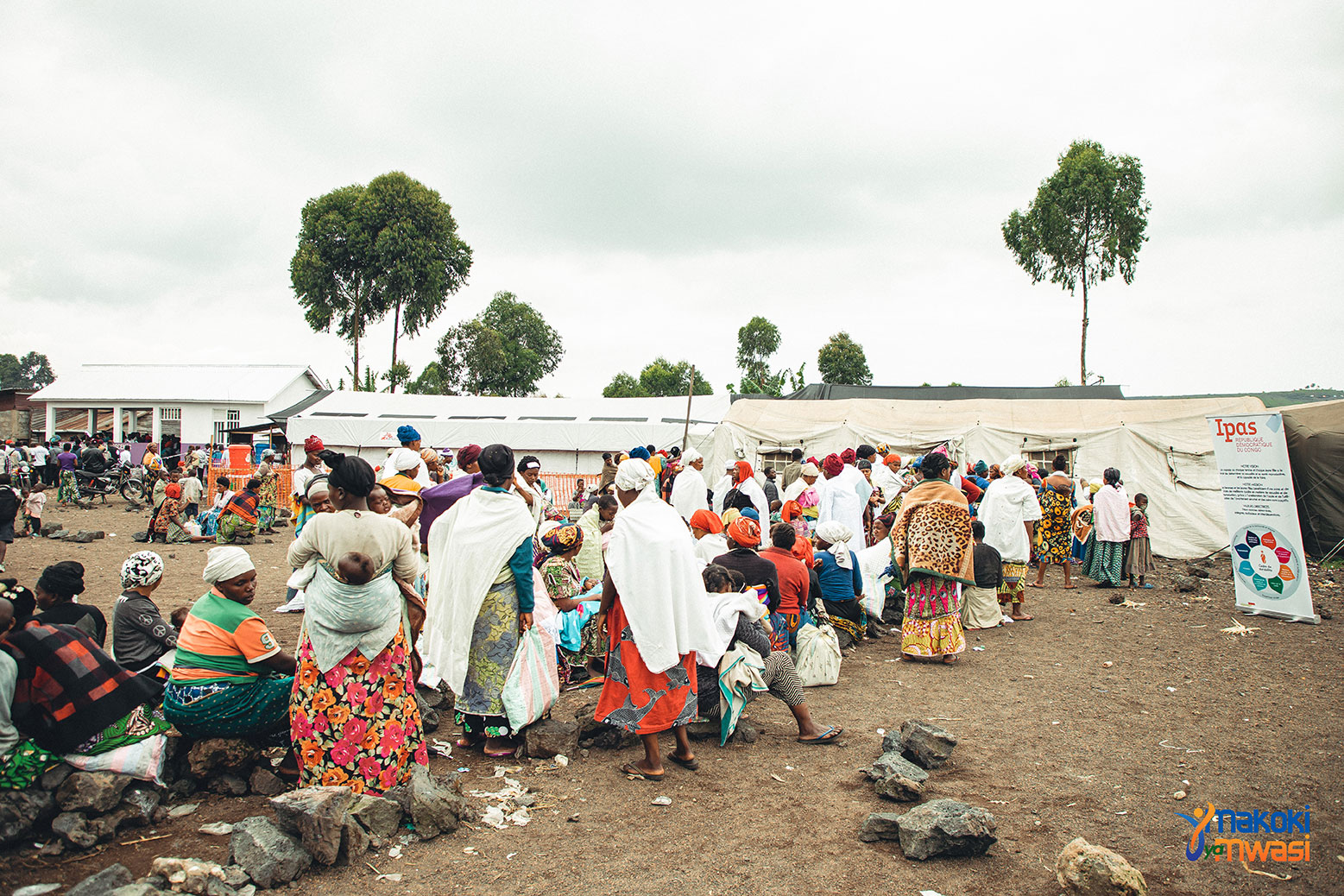How Ipas DRC delivered sexual and reproductive health care to nearly 1,000 displaced women and girls in 10 days
As a devastating armed conflict forced thousands of displaced people to gather in camps outside Goma in the Democratic Republic of Congo (DRC), the Ipas DRC team knew sexual and reproductive health services that included abortion were desperately needed. In the spirit of their tagline, “Makoki ya Mwasi,” a Lingala term that loosely translates as “the rights of women,” Ipas DRC refused to let a lack of funding deter them. They only had enough resources for 10 days of services, but worked around the clock to launch a mobile clinic and make every second count for the women and girls who needed them.
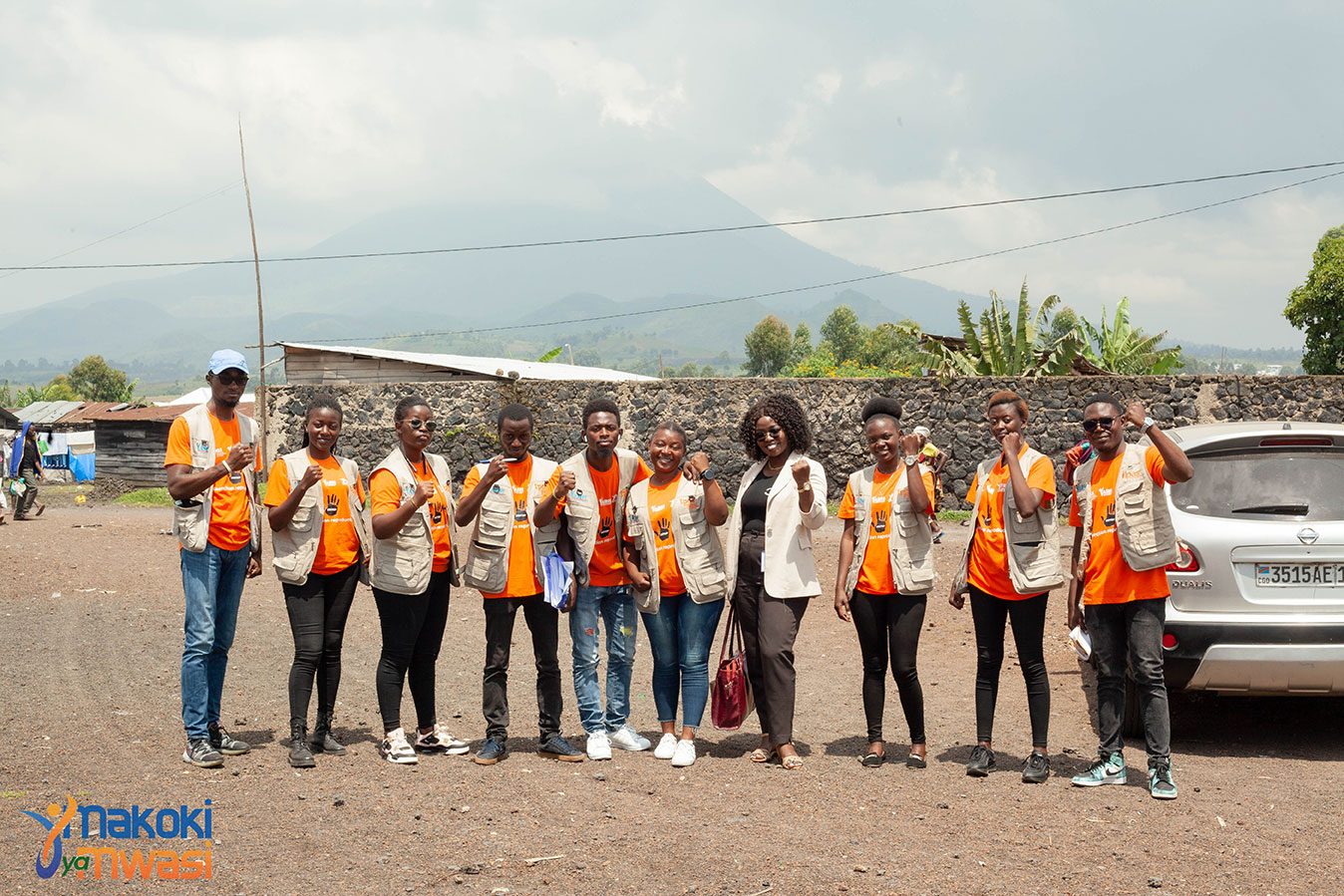
Dr. Celestine Buyibuyi with the Youth Alliance for Reproductive Health (YARH) team.
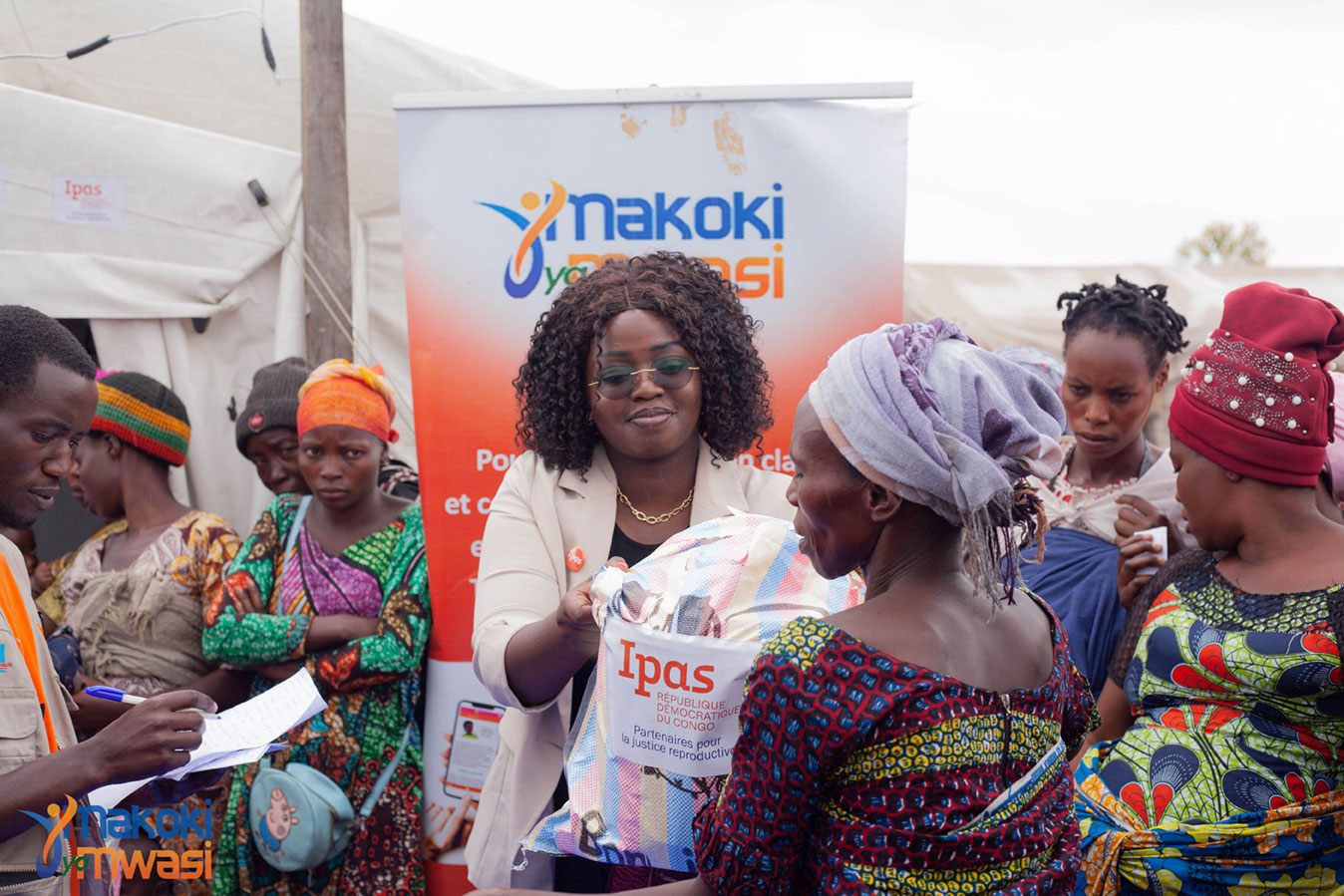
Dr. Celestine Buyibuyi (pictured above, giving out supplies to camp residents) was born in eastern Democratic Republic of Congo (DRC). As a young girl, she dreamt of being a midwife—this led her to become a doctor when she grew up. After studying medicine in Uganda, she returned to Goma, DRC, the city of beautiful weather and resilient people that she is proud to call home. There, she co-founded the Youth Alliance for Reproductive Health (YARH) with her friend and fellow eastern DRC native, Dr. Simon Bine Mambo.
Dr. Celestine joined Ipas DRC in 2022. A few months later, attacks from armed rebel groups in North Kivu forced tens of thousands of people, especially women and children, to flee their homes in conflict areas for camps of displaced people on the outskirts of Goma. Since then, about one million people have been displaced by the continued fighting—a number that continues to grow.
When visiting the nearby camp of Kanyaruchinya, Dr. Celestine saw thousands of tents made of sticks and tarpaulin stretching across the rocky surface of lava fields created by the 2021 volcanic eruption from Mount Nyiragongo, visible in the distance. She saw hunger, disease, and violence dominating people’s everyday lives. Humanitarian assistance organizations present in the camp struggled to meet basic needs like food, water, and shelter.
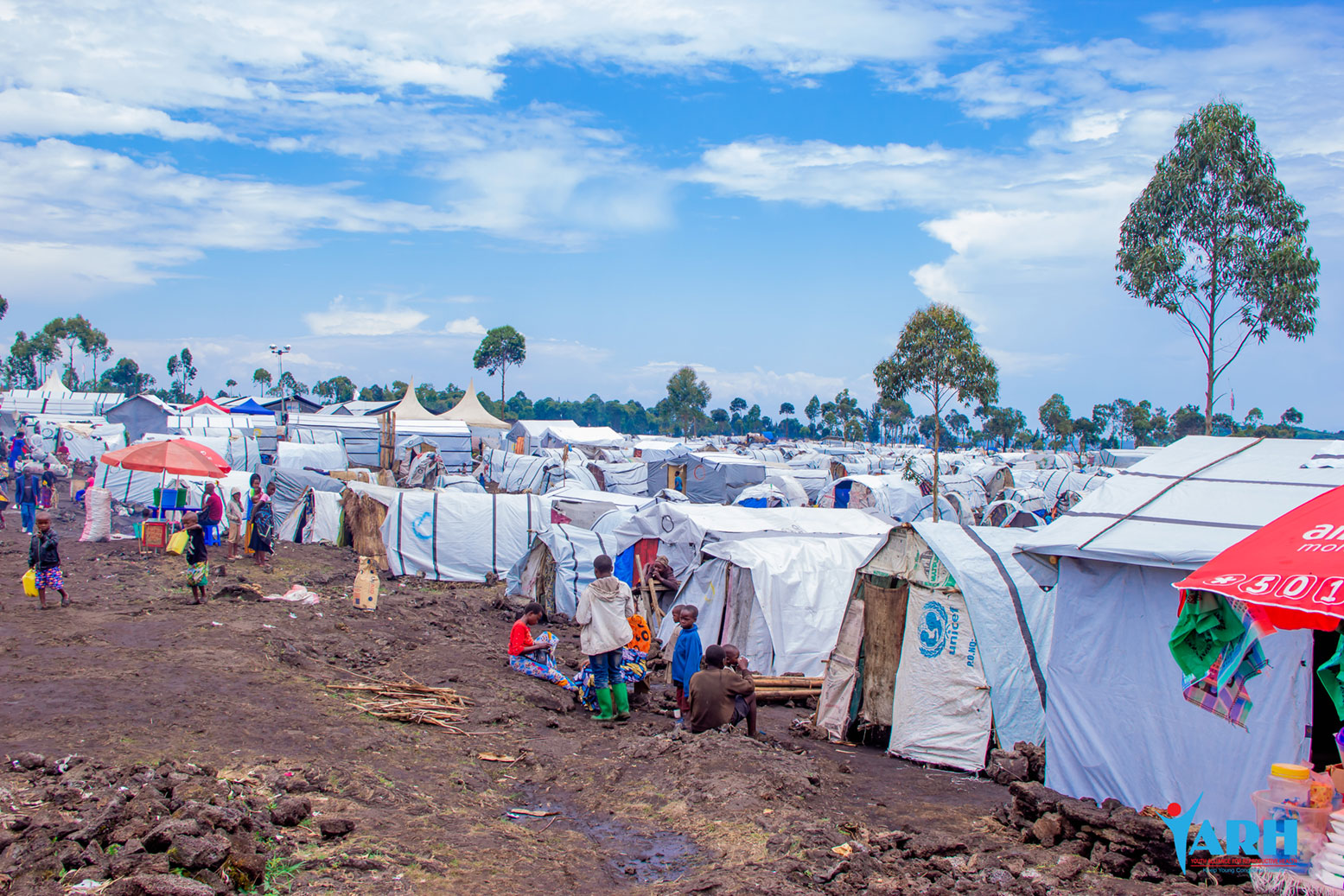
‘The abortion care services were nowhere to be seen’
Many of the women had survived horrific violence, including widespread rape, as they had fled their homes and journeyed to the camp. Sexual violence is rampant in the camp as well. Many women are forced to exchange sex for food and water for themselves and their families. This all adds up to an epidemic of sexually transmitted diseases and unplanned pregnancy. However, “the abortion care services were nowhere to be seen,” says Dr. Celestine.
Recognizing a critical and unmet need, Dr. Celestine leapt into action with Ipas DRC, in partnership with YARH. Quickly pulling together what available funding and resources they could, Ipas DRC established a mobile clinic in the Kanyaruchinya camp to provide free on-site sexual and reproductive health care such as contraception, testing and treatment for sexually transmitted infections/diseases (STIs/STDs), and comprehensive abortion care. The Mashujaa network of YARH provided outreach, raising awareness within the camp of available services like the mobile clinic, giving referrals and even accompanying women and girls to safely access care.
Working tirelessly, Ipas DRC and the Mashujaa network made a tremendous impact before funding and resources for the project were depleted. In ten short days, they reached over 955 people, connecting over 500 with STI services and 37 women with abortion care. Other services included support for survivors of sexual violence as well as provision of contraception and “dignity kits” for menstrual hygiene.
people reached in ten days
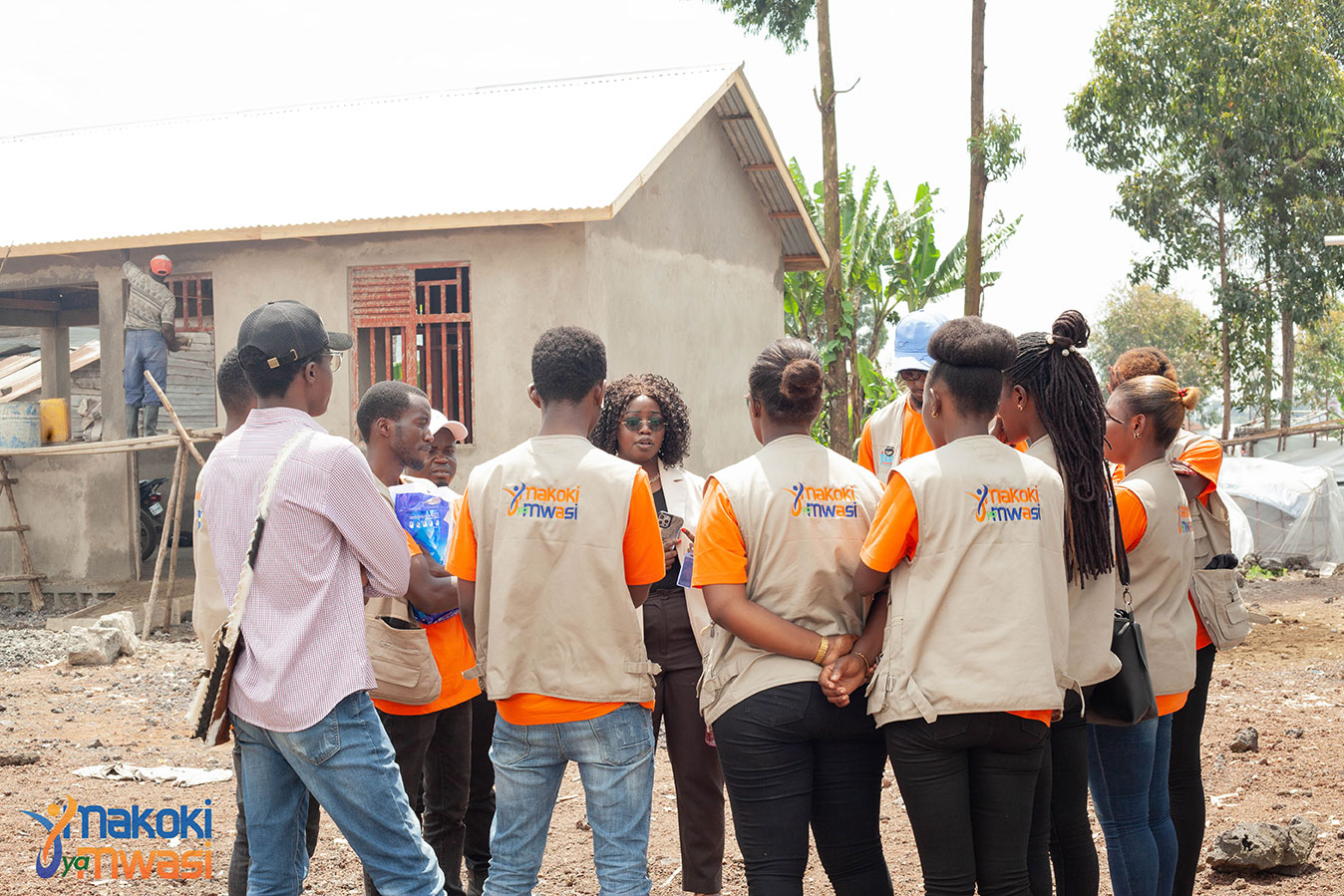
‘Believe in the power of young people’
The median age in DRC is 17 years old, with 45% of the population under age 14. Being youth-led is one reason why YARH’s Mashujaa Network is so effective—they understand the perspectives and communication needs of a mostly young community. They bridged the gap between clients and the mobile clinic, making sure that displaced women and girls did not struggle to find time-sensitive services like contraception, abortion and STI/STD treatment. They also provided critical follow-up to ensure that those referred received care, connecting them to available medical or mental health resources for continued support.
“
“We need to trust young people. When we work with young people from the start, we don’t get their resistance to services. As young people co-founding Youth Alliance for Reproductive Health, we have been solution makers in our community…for what is happening to our peers,” says Dr. Simon Bine Mambo. “Believe in the power of young people, and you are going to see change.”
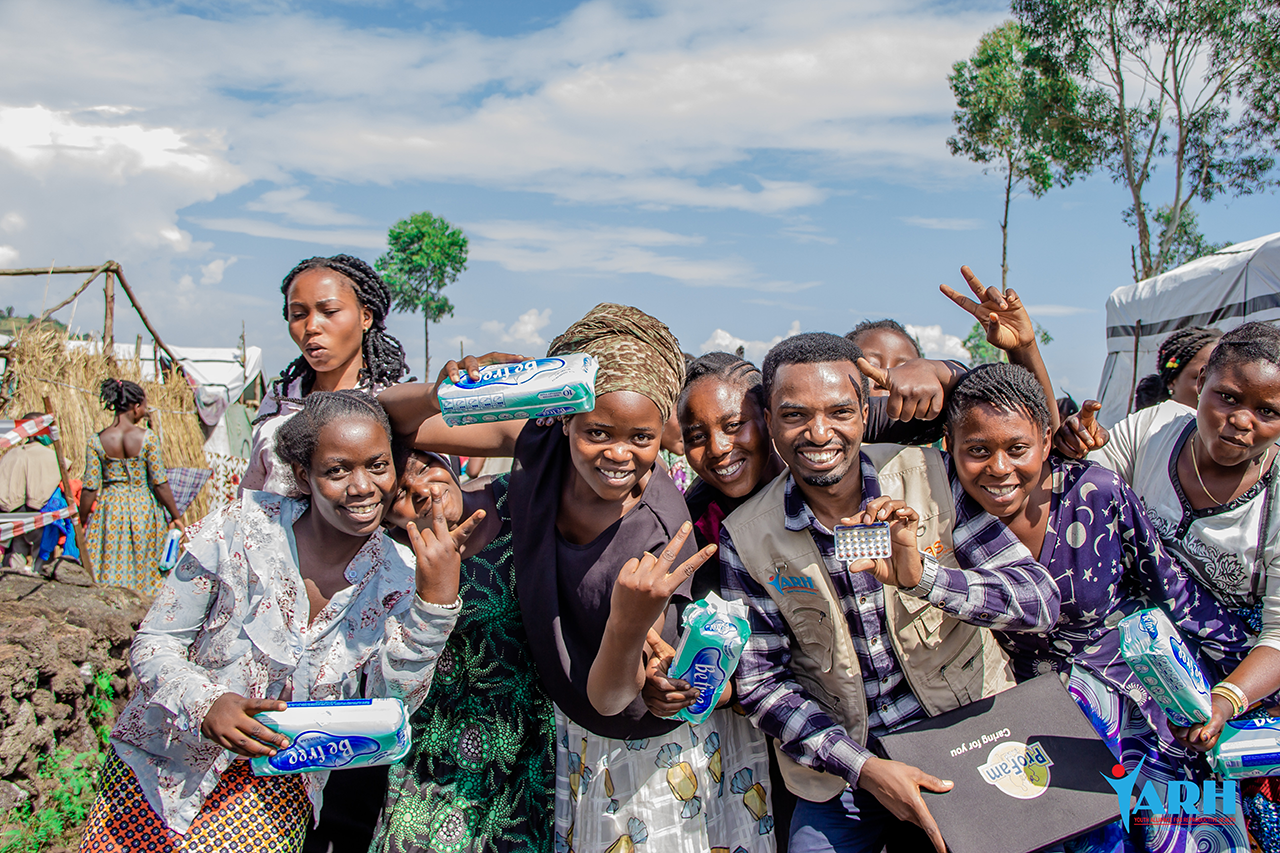
Dr. Simon Bine Mambo (shown center) and camp residents pose with contraception and menstrual hygiene supplies available at the clinic.
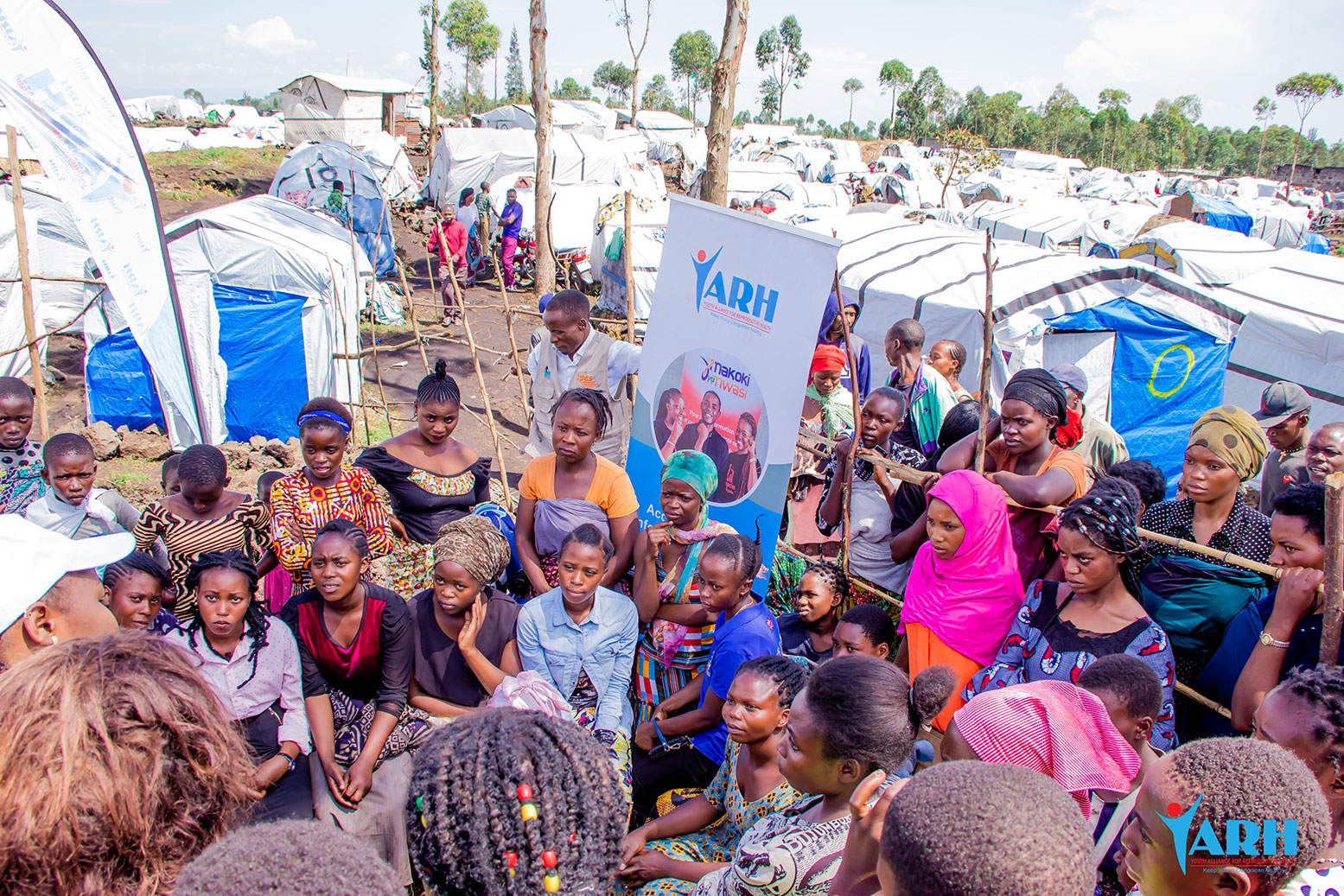
‘That’s why we are here for you’
“We all know that war is unplanned—we don’t know when we are going to get displaced,” says Dr Celestine, sharing the story of a woman she treated at the mobile clinic. “She was in the garden and then suddenly heard bombs. She ran to her home; no one was there. All her family had left, and she had to run alone to Goma. But when she was running alone, she got raped by four men.”
Once at the Kanyaruchinya camp, the woman reunited with her family. However, she began to suffer symptoms of a vaginal infection. When she attended a session organized by Ipas DRC in the camp about sexual and reproductive health, STIs/STDs, and abortion, she told them about her symptoms and was referred to the mobile clinic.
At the clinic, she discovered that not only did she contract an STI from the sexual assault, but she was also facing a dangerous pregnancy. In tears, she told the doctors that her husband might kill her for having sex with other men and that he wouldn’t care if she was raped or not.
“She was so scared. She was telling us that her life has ended,” continues Dr. Celestine. “We told her, ‘no, don’t worry—that’s why we are here for you.’ We discussed her rights…why the mobile clinic is there, the services that we offer, and how the care is safe and confidential. She felt relief,” says Dr. Celestine.
Because of the Ipas mobile clinic and the Mashujaa Network, the woman received effective STI treatment and comprehensive abortion care—and her personal healthcare details were kept private.
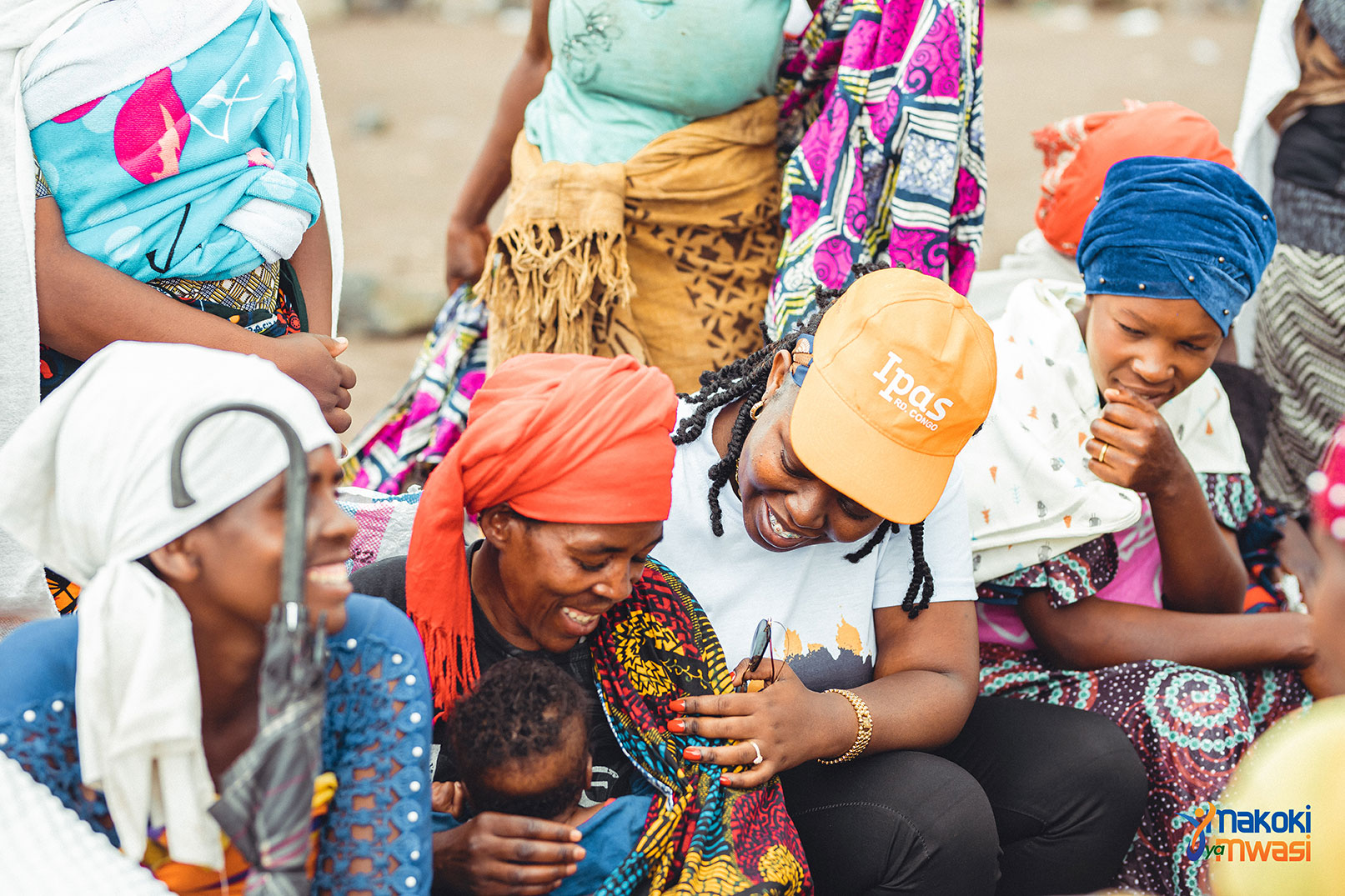
‘Women need us’
While the mobile clinic and referral network made a tremendous impact in such a short time, they were only able to serve 1.3 % of the total population of Kanyaruchinya—a population that continues to grow in a worsening humanitarian crisis because of continued fighting. It is clear that abortion services are still needed, and people have nowhere else to turn.
“When we were finishing our activities in Kanyaruchina, people were like ‘Ipas, you are leaving us and we don’t know when we shall leave this place…who is going to take care of us?’” says Dr. Celestine. “And for us, seated with crossed hands without intervening—it hurts. It’s really heartbreaking. My hope is for us to resume services, because women need us.”
“We became people who openly talk about abortion, and those in the camps for internally displaced persons could easily talk to us,” says Dr. Simon. “We receive calls from people there who want services even though we are not currently active on site. This shows that the need for sexual and reproductive health services does not end, even during a crisis.”
“
“People around the world need to know what’s happening. Some of them think this is like a movie, but this is reality,” says Dr. Celestine. “Ever since I was born, the war has been here. It’s like we’ve never had peace, and women are the ones carrying the burden. Sexual violence is used as a weapon of war. We need to let people know what’s really happening—by raising awareness.”
Photos by Unforgettable moments for Ipas DRC

Partner spotlight
We’re proud to partner with Youth Alliance for Reproductive Health—a youth-led, youth-serving organization that seeks to advance the sexual and reproductive health, rights and well-being of adolescents, young people and women.


